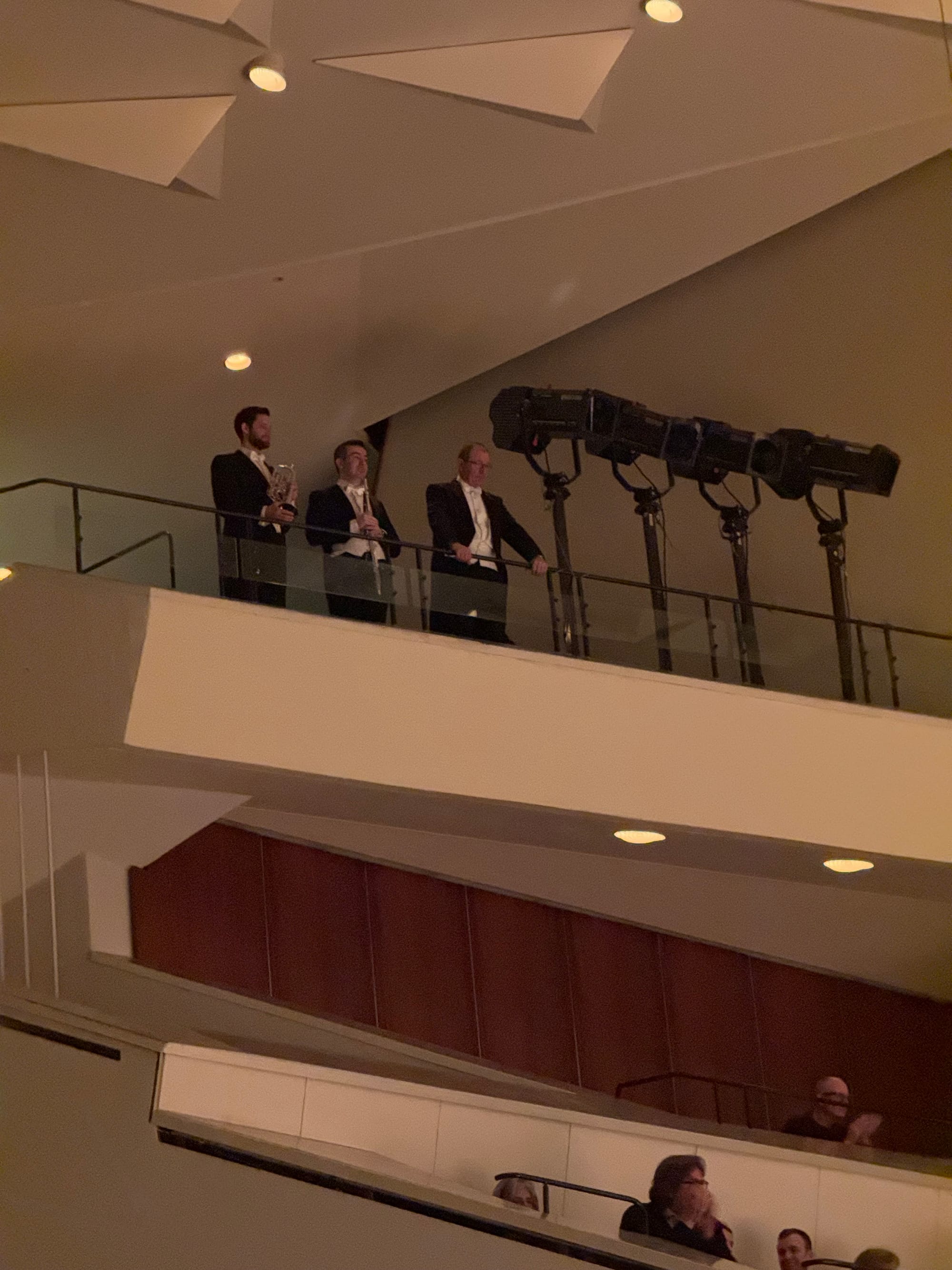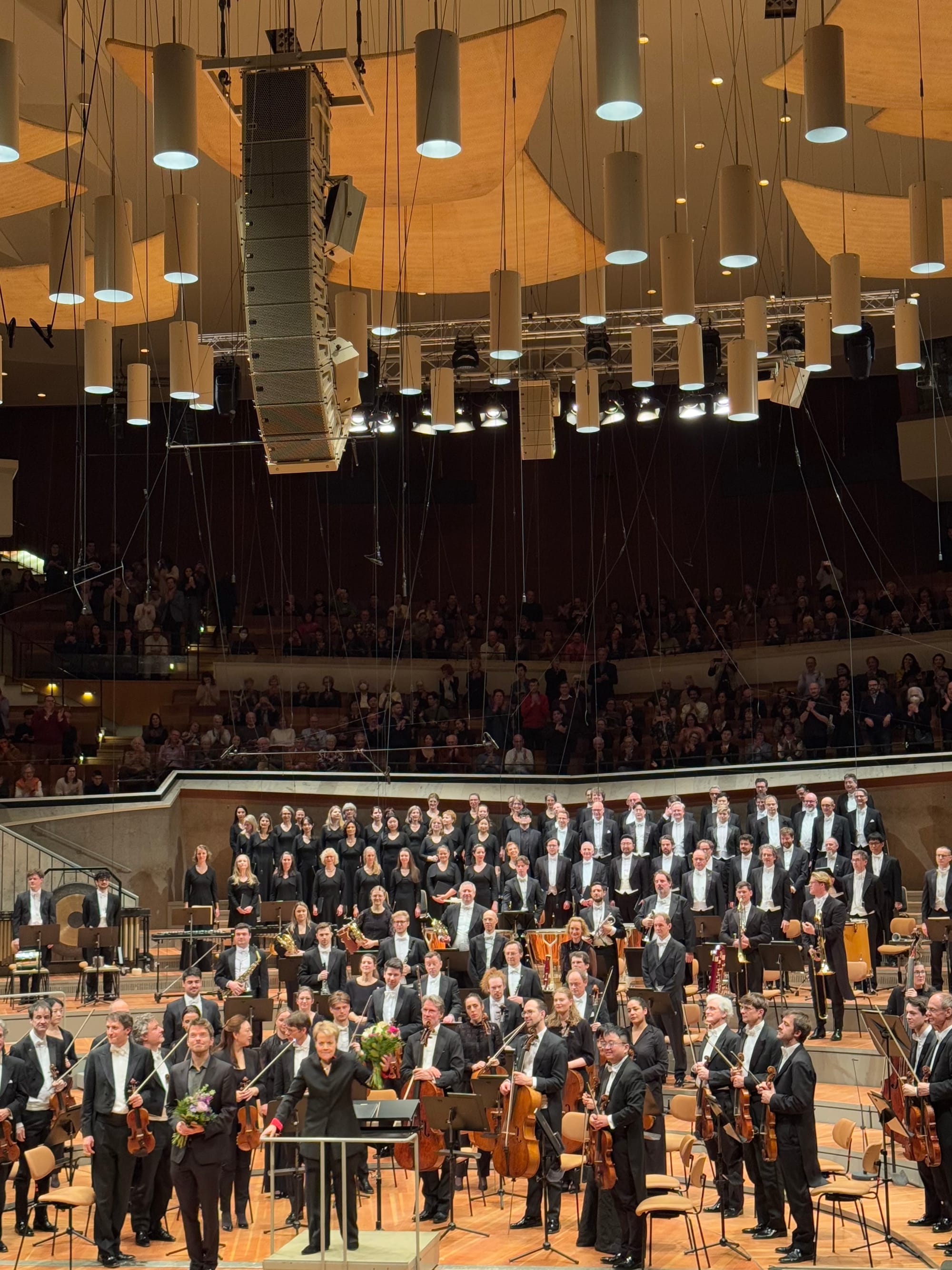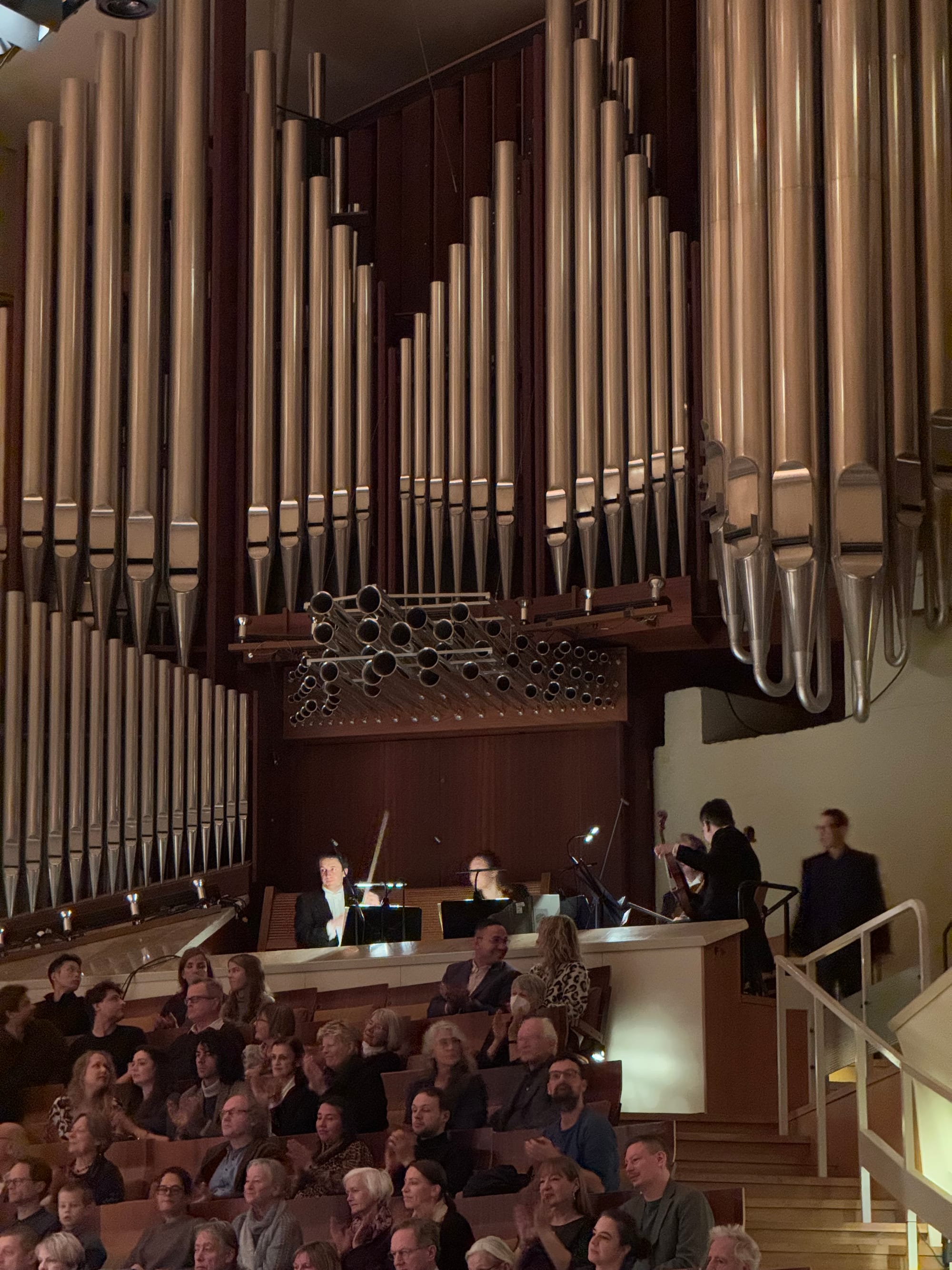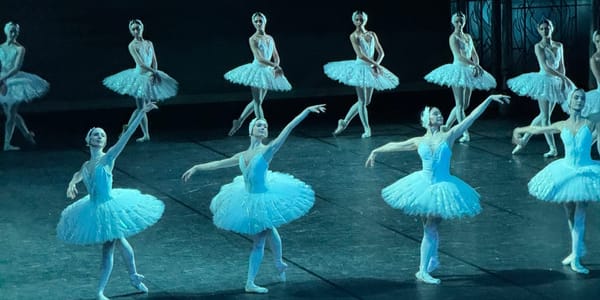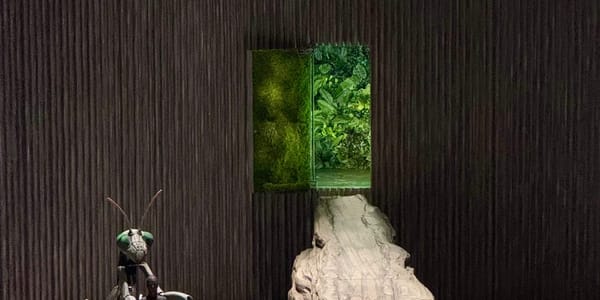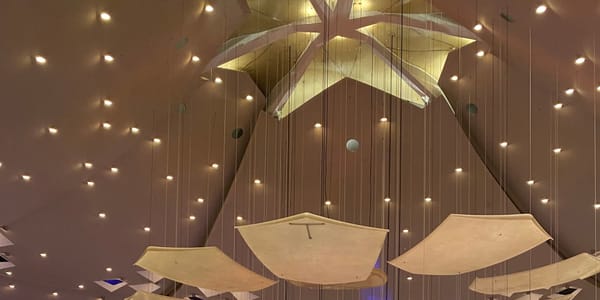Biennale "Paradise Lost?" at Berlin Phil with Marin Alsop
The Berlin Philharmonic’s Paradise Lost? Biennale explores the climate crisis through music. From Brett Dean’s fiery chaos to Copland’s pastoral calm, this concert made us hear nature’s beauty, fragility, and fate.
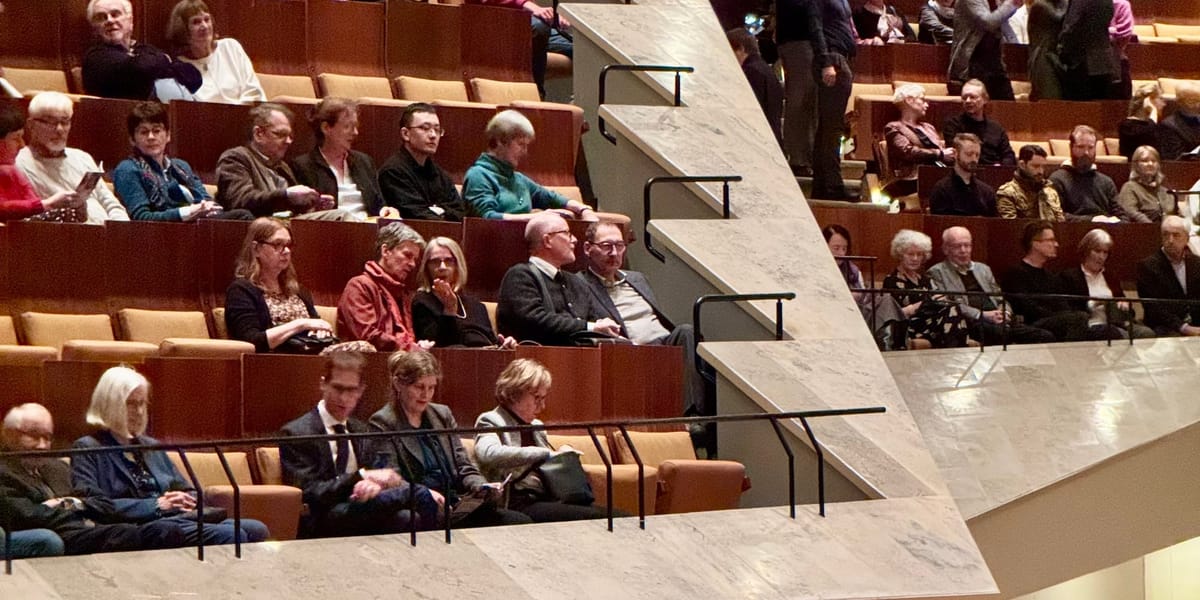
⭐️⭐️⭐️/4
🎻 Marin Alsop, Berliner Philharmoniker, Rundfunkchor Berlin
🎶 Tarkiainen, Dean, Copland, Villa-Lobos
🏛️ Philharmonie Berlin
🗓️ 22.02.2025
The Berlin Philharmonic’s 2025 Biennale title poses a discomforting question: PARADISE LOST? Through a series of concerts, the festival examines the climate crisis and its impact on the natural world. This particular evening, led by Marin Alsop with the Berliner Philharmoniker and the Rundfunkchor Berlin, presented a cool selection of works that painted vivid sonic landscapes—both of nature’s beauty and its fragility.
Outi Tarkiainen’s DAY NIGHT DAY set the tone with its world premiere, guiding the audience through a full day-night cycle. Opening in quiet stillness, it crescendos into flurries of activity before settling back into a hushed calm—though its title suggests that, in truth, the night is when nature is most alive.
The highlight of the evening was Brett Dean’s FIRE MUSIC, receiving its German premiere. More than a composition, this was an immersive soundscape: strings, brass, and percussion were scattered across the balconies, creating a surround-sound experience that turned the Philharmonie into a wildfire in motion. The music follows a clear arc—lightning strikes, flames ignite, wind fans the fire, animals flee. Firefighting planes swoop in, alarms wail in the distance, and finally, rain brings the blaze to an uncertain end. The innovative use of wind pipes, plastic bottles, and electric guitar added a raw, unpredictable edge to the piece, making it feel almost cinematic. It’s easy imagining FIRE MUSIC being the soundtrack to a Disney animation in the style of the 1940s FANTASIA movie—I’m thinking specifically of the impact that the animation to the music of Paul Dukas’ SORCERER’S APPRENTICE has had on generations of kids and adults.
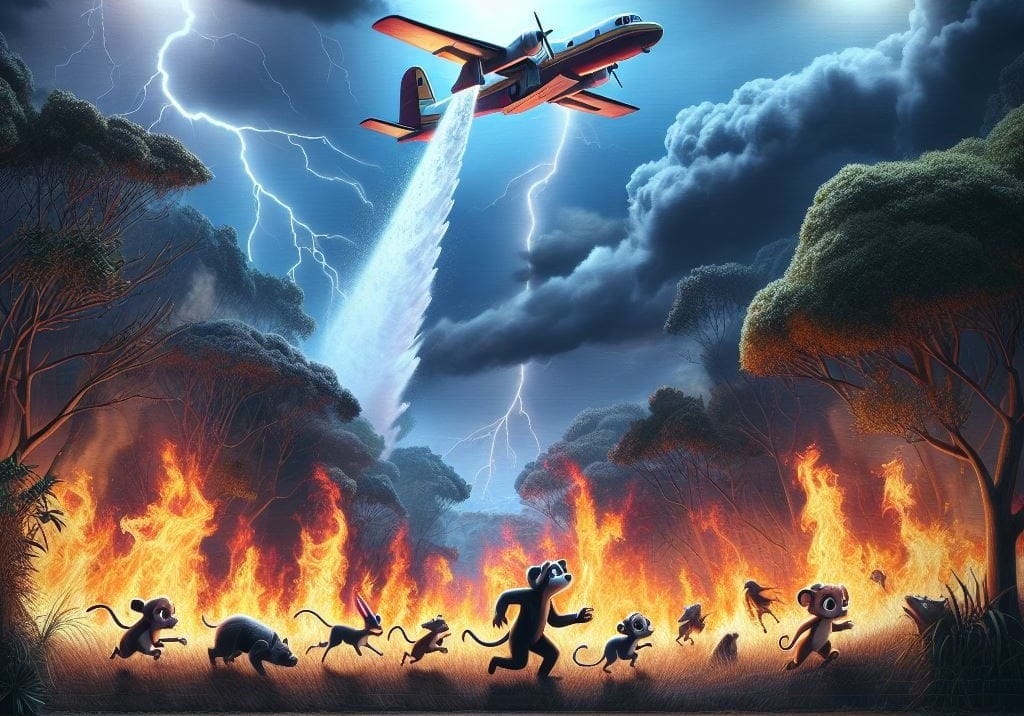
Aaron Copland’s APPALACHIAN SPRING provided a stark contrast—a nostalgic, pastoral vision of rural America. With its gentle wedding dances and sun-dappled landscapes, it painted humanity’s more harmonious relationship with nature. Just as the concert began with the rise and fall of a day, APPALACHIAN SPRING closed the circle, offering a sense of peace—perhaps fleeting, perhaps illusory.
Finally, Heitor Villa-Lobos’ CHÔRO 10 RASGA O CORAÇÃO transported us deep into the Brazilian rainforest. Birdsong-like woodwinds and pulsing rhythms built toward a mighty choral climax, evoking the ongoing tension between urban expansion and the untamed wilderness. The piece left an open question lingering in the air: what happens when an unstoppable force (humans and urban sprawl) meets an immovable object (wilderness and nature)?
This concert did not simply depict nature—it made us hear its beauty, its chaos, its destruction, and its resilience. A reminder, through music, of all that is at stake.
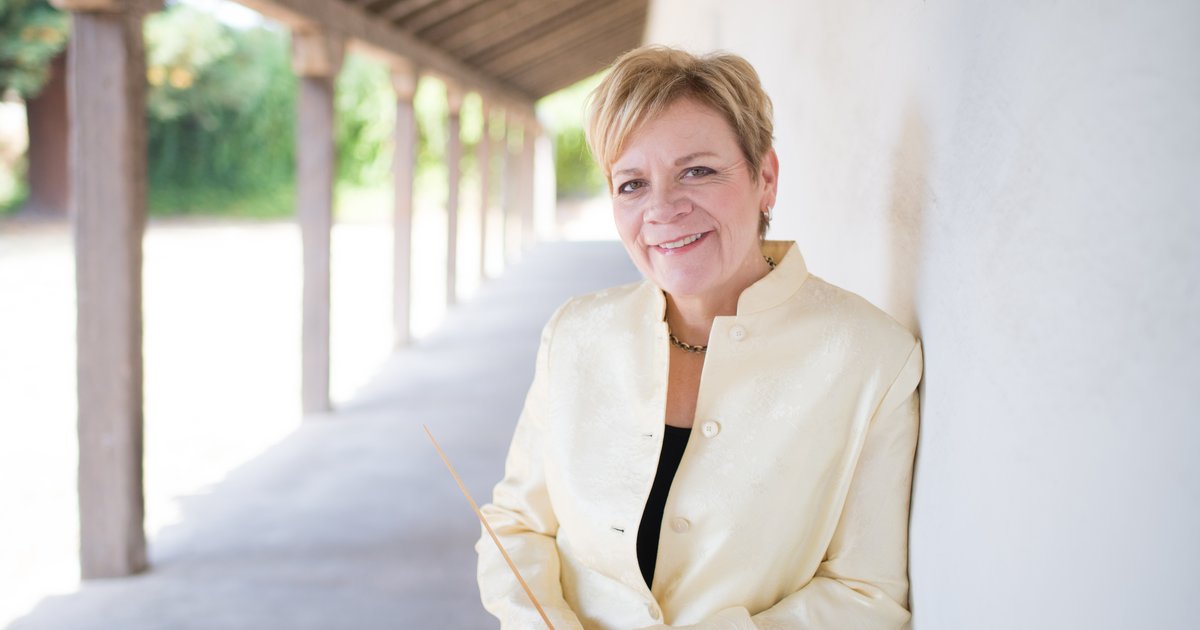
Artists
Berliner Philharmoniker
Marin Alsop conductor
Rundfunkchor Berlin
Gijs Leenaars chorus master
Programme
Outi Tarkiainen
Day Night Day, commissioned by the Berliner Philharmoniker Foundation, the Boston Symphony Orchestra and the Finnish Radio Symphony Orchestra (Première)
Brett Dean
Fire Music for orchestra (German premiere)
Aaron Copland
Appalachian Spring Suite (1945)
Heitor Villa-Lobos
Chôros No. 10 ‟Rasga o coraçãoˮ for orchestra and mixed choir
Rundfunkchor Berlin, Gijs Leenaars chorus master
